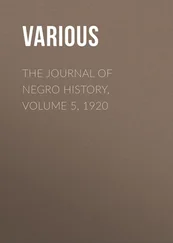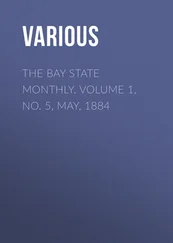Various - The Bay State Monthly, Volume 3, No. 1
Здесь есть возможность читать онлайн «Various - The Bay State Monthly, Volume 3, No. 1» — ознакомительный отрывок электронной книги совершенно бесплатно, а после прочтения отрывка купить полную версию. В некоторых случаях можно слушать аудио, скачать через торрент в формате fb2 и присутствует краткое содержание. Жанр: foreign_antique, periodic, foreign_edu, на английском языке. Описание произведения, (предисловие) а так же отзывы посетителей доступны на портале библиотеки ЛибКат.
- Название:The Bay State Monthly, Volume 3, No. 1
- Автор:
- Жанр:
- Год:неизвестен
- ISBN:нет данных
- Рейтинг книги:3 / 5. Голосов: 1
-
Избранное:Добавить в избранное
- Отзывы:
-
Ваша оценка:
- 60
- 1
- 2
- 3
- 4
- 5
The Bay State Monthly, Volume 3, No. 1: краткое содержание, описание и аннотация
Предлагаем к чтению аннотацию, описание, краткое содержание или предисловие (зависит от того, что написал сам автор книги «The Bay State Monthly, Volume 3, No. 1»). Если вы не нашли необходимую информацию о книге — напишите в комментариях, мы постараемся отыскать её.
The Bay State Monthly, Volume 3, No. 1 — читать онлайн ознакомительный отрывок
Ниже представлен текст книги, разбитый по страницам. Система сохранения места последней прочитанной страницы, позволяет с удобством читать онлайн бесплатно книгу «The Bay State Monthly, Volume 3, No. 1», без необходимости каждый раз заново искать на чём Вы остановились. Поставьте закладку, и сможете в любой момент перейти на страницу, на которой закончили чтение.
Интервал:
Закладка:
In 1851 he returned to Manchester and established himself as a lawyer, gaining in a few months a practice which gave him a living; but in October of the next year the sale of the Mirror afforded an opening more suited to his talents and ambition, and having bought the property he thenceforth devoted himself to its development.
He had no experience, no capital, but he had confidence in himself, energy, good judgment, and a willingness to work for the success he was determined to gain. For months and years he was editor, reporter, business manager, accountant, and collector. In these capacities he did an amount of work that would have killed an ordinary man, and did it in a way that told; for everymonth added to the number of his patrons; and slowly but steadily his business increased in volume and his papers in influence.
He early made it a rule to condense everything that appeared in the columns of the Mirror into the smallest possible space, to make what he printed readable as well as reliable, to make the paper better every year than it was the preceding year, and to furnish the weekly edition at a price which would give it an immense circulation without the help of travelling agents or the credit system: and to this policy he has adhered. Besides this, he spared no expense which he judged would add to the value of his publications, and his judgment has always set the bounds far off on the very verge of extravagance. Whatever machine promised to keep his office abreast of the times, and increase the capacity for good work, he has dared buy. Whatever man he has thought would brighten and strengthen his staff of assistants, he has gone for, and if possible got, and whatever new departure has seemed to him likely to win new friends for the Mirror he has made.
In this way he has gone from the bottom of the ladder to the top. From time to time rival sheets have sprung up beside him, but only to maintain an existence for a brief period, or to be consolidated with the Mirror. All the time there has been sharp competition from publishers elsewhere, but this has only stimulated him to make a better paper and push it succesfully in fields which they have regarded as their own.
In connection with the Mirror a great job printing establishment has grown up, which turns out a large amount of work in all departments, and where the state printing has been done six years. Mr. Clarke has also published several books, including "Sanborn's History of New Hampshire," "Clarke's History of Manchester," "Successful New Hampshire Men," "Manchester Directory," and other works. Within a few years a book bindery has been added to the establishment.
Mr. Clarke still devotes himself closely to his business six hours each day, but limits himself to this period, having been warned by an enforced rest and voyage to Europe in 1872 to recover from the strain of overwork, that even his magnificent physique could not sustain too great a burden, and he now maintains robust and vigorous health by a systematic and regular mode of life, by long rides of fifteen to twenty-five miles daily, and an annual summer vacation.
In making the Mirror its owner has made a great deal of money. If he had saved it as some others have done, he would have more to-day than any other in Manchester who has done business the same length of time on the same capital. But if he has gathered like a man born to be a millionaire, he has scattered like one who would spend a millionaire's fortune. He has been a good liver and a free giver. All his tastes incline him to large expenditures. His home abounds in all the comforts that money will buy. His farm is a place where costly experiments are tried. He is passionately fond of fine horses, and his stables are always full of those that are highly bred, fleet, and valuable. He loves an intelligent dog, and a good gun, and is known far and near as an enthusiastic sportsman.
He believes in being good to himself and generous to others; values money only for what it will buy, and every day illustrates the fact that it is easier for him to earn ten dollars than to save one by being "close."
A business that will enable a man of such tastes and impulses to gratify all his wants and still accumulate a competency for his children is a good one, and that is what the business of the Mirror counting-room has done.
Nor is this all, nor the most, for the Mirror has made the name of John B. Clarke a household word in nearly every school district in Northern New England and in thousands of families in other sections. It has given him a great influence in the politics, the agriculture, and the social life of his time, has made him a power in shaping the policy of his city and state, and one of the forces that have kept the wheels of progress moving in both for more than thirty years.
In a word, what one man can do for and with a newspaper in New Hampshire John B. Clarke has done for and with the Mirror, and what a great newspaper can do for a man the Mirror has done for John B. Clarke.
DENMAN THOMPSON
Throughout the United States where-ever the name of New England is held in respect there is the name of Denman Thompson a household word. His genius has embodied in a drama the finer yet homlier characteristics of New England life, its simplicity, its rugged honesty, its simple piety, its benevolence, partially hid beneath a rough and uncouth exterior. His drama is an epic—a prose poem—arousing a loyal and patriotic love for the land of the Pilgrims in the hearts of her sons, whether at home, on the rolling prairies of the West, in the sunny South, amid the grand scenes of the Sierras, or on the Pacific slope.
That Denman Thompson was not a native of New Hampshire was rather the result of chance. His parents were natives of Swanzey, where they are still living at a ripe old age, and where they have always lived, save for a few years preceeding and following the birth of their children. In 1831 the parents moved to Girard, Erie County, Pennsylvania, when, October 15, 1833, was born their gifted son. The boy was blessed with one brother and two sisters, and death has yet to strike its first blow in the family.
At the age of thirteen years Denman accompanied his family to the old home in Swanzey, where for several years he received the advantages of the education afforded by the district school. For his higher education he was indebted to the excellent scholastic opportunities afforded by the Mount Cæsar Seminary in Swanzey.
At the age of nineteen he entered the employ of his uncle in Lowell, Massachusetts, serving as book-keeper in a wholesale store, and in that city he made his debut as Orasman in the military drama of the French Spy.
In 1854, at the age of twenty-one years, he was engaged by John Nickerson, the veteran actor and manager, as a member of the stock company of the Royal Lyceum, Toronto. From the first his success was assured, for aside from his natural adaptation to his profession he possesses indomitable perseverance, a quality as necessary to the rise of an artist as genius. On the provincial boards of Toronto he studied and acted for the next few years, perfecting himself in his calling and preparing for wider fields. Then he acted the rollicking Irishman to perfection; the real live Yankee, with his genuine mannerisms and dialect, with proper spirit and without ridiculous exaggeration, and the Negro, so open to burlesque. The special charm of his acting in those characters was his artistic execution. He never stooped to vulgarities, his humor was quaint and spontaneous, and the entire absence of apparent effort in his performance gave his audience a most favorable impression of power in reserve. His favorite characters were Salem Scudder in The Octoroon, and Myles Na Coppaleen in Colleen Bawn.
In April, 1862, Mr. Thompson started for the mother country, and there his reception was worthy a returning son who had achieved a well-earned reputation. His opening night in London was a perfect ovation, and during his engagement the theatre was crowded in every part. He met with flattering success during his brief tour, performing at Edinburg and Glasgow before his return to Toronto the following fall.
Читать дальшеИнтервал:
Закладка:
Похожие книги на «The Bay State Monthly, Volume 3, No. 1»
Представляем Вашему вниманию похожие книги на «The Bay State Monthly, Volume 3, No. 1» списком для выбора. Мы отобрали схожую по названию и смыслу литературу в надежде предоставить читателям больше вариантов отыскать новые, интересные, ещё непрочитанные произведения.
Обсуждение, отзывы о книге «The Bay State Monthly, Volume 3, No. 1» и просто собственные мнения читателей. Оставьте ваши комментарии, напишите, что Вы думаете о произведении, его смысле или главных героях. Укажите что конкретно понравилось, а что нет, и почему Вы так считаете.












